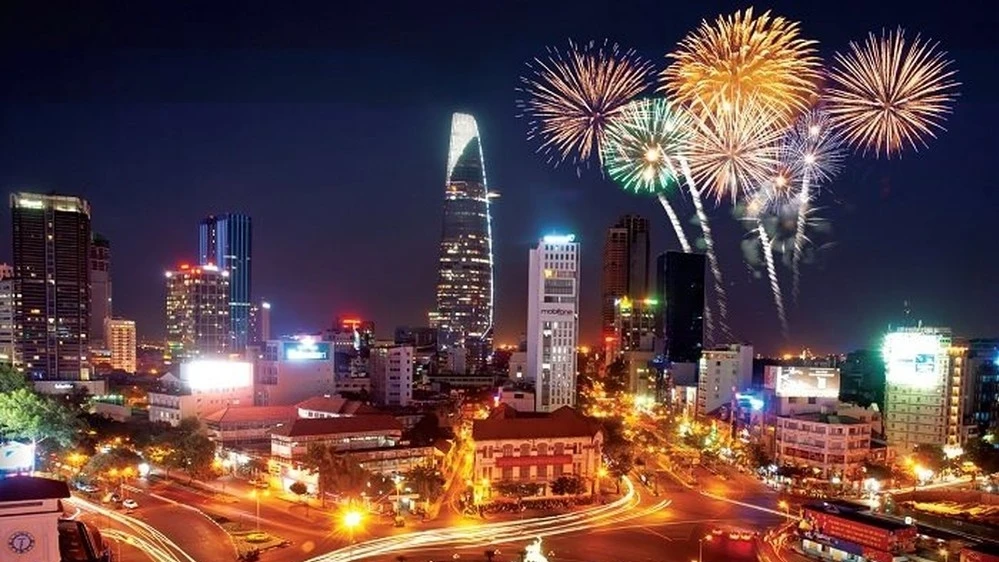
Vying for Vietnam
However, portfolio managers disagree on the prospects for the emerging Asian country. We speak to four key voices about why they are underweight or overweight Vietnam. Sam Benstead reports on CityWide Selector.
Robert Marshall-Lee
Investment leader, emerging and Asian equities, Newton Investment Management

Robert Marshall-Lee does not currently hold any positions in Vietnam in his BNY Mellon Global Emerging Markets fund.
One of the reasons is that he anticipates business diverted from the trade war will be spread out across Asia and not just funnel into Vietnam. Moreover, he said Vietnam offers a relatively limited pool of companies in which he is able to invest.
‘The trade war may lead to some acceleration in investment into emerging markets outside of China, but we expect this will be spread more widely than just Vietnam,’ said Marshall-Lee.
‘When assessing opportunities in future supply chains, we expect these to continue to include China. It is worth bearing in mind that the US accounts for just 10-20% of Chinese exports, meaning only part of production would need to move and you would need a very big tariff to incentivise moving production, especially given the Chinese renminbi has already adjusted, offsetting the first round of tariffs pretty much in full.’
Marshall Stocker
Director of country research, Eaton Vance

Marshall Stocker was very optimistic about Vietnam’s prospects, a stance that has led to a 9% position in the Eaton Vance Emerging and Frontier Countries Equity fund, as of 30 June 2019.
He argued that the development of economic policy looks positive over the next 10 years will lead to improvements in economic freedom. For example, they have liberalised foreign ownership of companies and carried out privatisation of state enterprises.
Importantly, Stocker said productivity gains will be high in Vietnam because it has a highly educated workforce, particularly in mathematics.
Moreover, in contrast to Marshall-Lee, he said the trade war is actually helping Vietnam, as manufacturing is moving there due to uncertainty around China’s trading relationship with the US.
Oliver Bell
Portfolio manager, T. Rowe Price

Over the five years, the T. Rowe Price Frontier Markets Equity fund managed by Oliver Bell has generated more alpha from Vietnam than any other market. He first started investing there in 2014.
He said investors started paying more attention when the government relaxed foreign ownership limits and significant investment flowed into the country two or three years ago.
‘Vietnam’s GDP growth this year is expected to be one of the highest in the world at 6.5%, which appears to be sustainable. Vietnam is fast becoming a hotspot for multinational companies wanting to set-up low-cost manufacturing, especially for businesses seeking to divert supply chains away from China.’
He said it is not difficult to see why investors are so optimistic about Vietnam. ‘Wage costs average below $250 a month, while Vietnam boasts a strong network of free trade deals and a strategic geographical location.
‘As more and more global companies look outside of China, we see Vietnam benefitting from associated job creation, wage growth and increased demand for housing. Our current holdings are well positioned to benefit, extending across the banking, IT, consumer and real estate sectors,’ he said.
At the end of August 2019, Bell was 5.6% overweight Vietnam in his frontier markets fund.
Johnny Mak
Emerging market debt portfolio manager, PGIM Fixed Income

Vietnam has made great strides in its economic development and the government set up a very welcoming environment to foreign investment, according to PGIM Fixed Income’s Johnny Mak.
However, he said the government has placed less emphasis on macroeconomic fundamentals, which is highlighted by elevated fiscal deficits, credit growth and a lack of FX flexibility.
‘As a result, Vietnam has recorded very high rates of growth but also witnessed repeated episodes of economic and financial stress, e.g., a banking and SOE crisis in 2008 and 2011, as well as a rapidly rising stock of public debt, is now approximately 60% of GDP,’ said Mak.
As fixed income investors, the opportunity set for Mak to invest in Vietnam is limited to USD denominated sovereign bonds, which are rarely issued. The last issuance from Vietnam was in 2014 when the sovereign issued a 10-year bond which PGIM Fixed Income invested in at the time.
‘We anticipate the sovereign may return to the capital markets in 2019/2020 to refinance an existing bond due to mature in 2020,’ added Mak.
For Mak, the biggest opportunity in Vietnam comes from global trade and tourism but there needs to be investment in its infrastructure in order to support the continued growth of the country.
‘We are beginning to witness new opportunities as Vietnam corporates are exploring external funding to finance domestic investments. Most recently, a new USD denominated bond was issued to refinance a power plant project.
‘We anticipate seeing more external funding exercises in the coming years in sectors ranging from energy, utility and property, along with government sponsored Pubic Private Partnership infrastructure projects,’ he said.




















